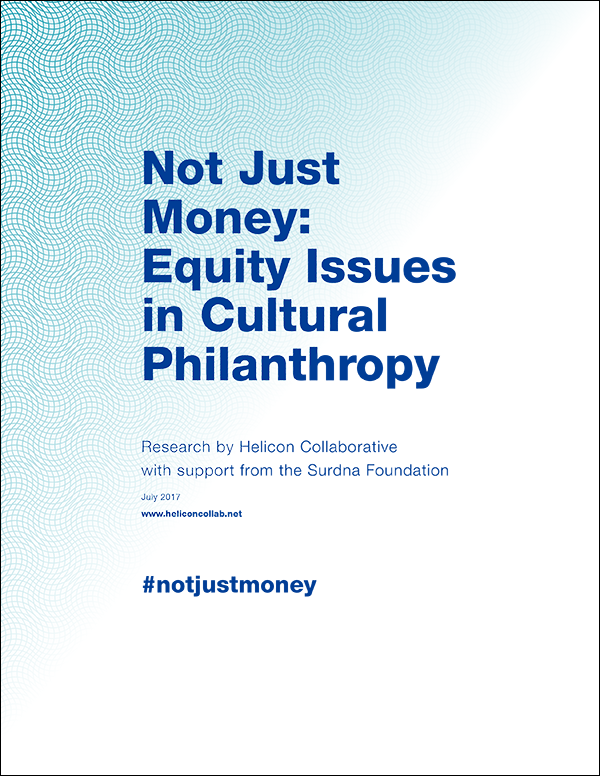Diversity, Equity, and Inclusion
In moments when respect for cultural diversity feels even more urgent, a national grantmaking program called Building Bridges, by the Doris Duke Foundation for Islamic Art (DDFIA), works to foster understanding and engagement between Muslim and non-Muslim communities.
Read More...The promotion of diversity and equity in the cultural workforce is the driver for the CreateNYC: Leadership Accelerator, a pilot program of the New York City Department of Cultural Affairs (DCLA) that recently announced an open call for applicants. The program's curriculum was designed by the CUNY School of Professional Studies (CUNY SPS) and the CUNY Creative Arts Team and is available for 25 mid-level professionals that work in any area of the cultural sector.
Read More...The Memphis Music Initiative (MMI), dedicated to broaden and strengthen existing music engagement offerings in and out of schools and supporting youth-centered, community-based music spaces, released a new study that looks at the landscape of equity in arts funding alongside patterns of exclusionary funding practices which all too regularly confront black and brown arts organizations.
Read More...A conversation with staff about inclusion is fundamental in order for them to feel both welcome and able to contribute to a foundation’s work when sharing their experiences, affirms Kevin Bolduc, vice president of assessment and advisory services at the Center for Effective Philanthropy (CEP).
Read More...The arts and culture sector continues to have conversations on multiple levels about how to advance the causes of equity, inclusion, and diversity. The discussion is not new, but the momentum toward implementing clear action steps is building. A new level of understanding of the ways in which racial and social inequities are the result of complex systemic issues has given rise to a realization that the path to truly effective solutions will require deep, and deeply challenging, institutional change.
Read More...Social movements need the arts. Should we ask tougher questions to optimize their influence?
Creative voices, widely and rightfully credited as moving “hearts and mind,” are increasingly understood as playing a core role in speaking to, supporting, or even triggering broader social change. Talented storytellers are disrupting the status quo, fostering new connections, challenging dominant narratives, sharing bold visions for equitable and joyful futures, and creating vehicles for action.
Read More...These remarks were presented by Rip Rapson, president, The Kresge Foundation, to the closing plenary of the 2017 GIA Conference in Detroit, Michigan, on October 31, 2017.
Thank you, Eddie, for such a gracious introduction.
Read More...July 2017, 37 pages. Surdna Foundation, 330 Madison Avenue, 30th Floor, New York, NY 10017. (212) 557-0010. http://surdna.org.
Download:
Read More...Recently, Caroline served on the jury of a government arts council. Among the forms she had to fill out were the standard nondiscrimination forms required of any vendor doing business in this city. It gave her pause, as one individual, to agree that her “firm” would not discriminate against “its employees” on the basis of “Race, color, creed, religion, national origin, ancestry, age, sex, sexual orientation, gender identity (transgender status), domestic partner status, marital status, disability, AIDS/HIV status, height, weight.”
Read More...The League of American Orchestras’ upcoming national conference in Detroit falls just days before the fiftieth anniversary of the 1967 Detroit uprising, the largest urban disruption in America since the Civil War. According to Detroit Symphony Orchestra (DSO) president Anne Parsons, the 1967 riot was the context for the orchestra’s fellowship program for African American musicians.
Read More...
